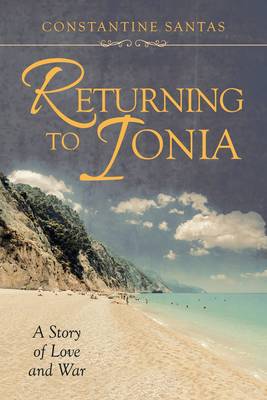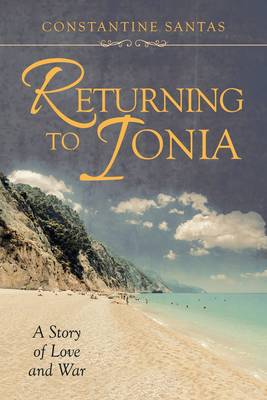
Je cadeautjes zeker op tijd in huis hebben voor de feestdagen? Kom langs in onze winkels en vind het perfecte geschenk!
- Afhalen na 1 uur in een winkel met voorraad
- Gratis thuislevering in België vanaf € 30
- Ruim aanbod met 7 miljoen producten
Je cadeautjes zeker op tijd in huis hebben voor de feestdagen? Kom langs in onze winkels en vind het perfecte geschenk!
- Afhalen na 1 uur in een winkel met voorraad
- Gratis thuislevering in België vanaf € 30
- Ruim aanbod met 7 miljoen producten
Zoeken
€ 13,95
+ 27 punten
Uitvoering
Omschrijving
Largely based on historical events, the occupation of Greece by Italy's fascist dictatorship of Benito Mussolini and the Nazis of Adolph Hitler of Germany, this narrative is fictional in its entirety. The narrator, a boy ages 10-15, the duration of the War, is entirely invented as are the characters in the story and the events narrated. I spent many years writing the stories and read them to audiences on occasion. Some were published in literary magazines while I was still a student and some in blogs today. Most, however, remained unpublished and gradually became what one might call the "spine" of the present narrative. My emphasis was in plotting a narrative of episodes I had written over a long period of time and, as I went along, I sought to turn a pastiche of disparate parts into a streaming whole. The reader will decide whether I have succeeded. One final word about the title: Returning to Ionia is mostly a reference to the last part of the story, which tells the reader about the protagonist and his return to the place of his birth and is busy still designing the ending of his story. Ionia is a made-up name, an unidentified place in the Western part of Greece, the Ionian Sea, dotted with the famous Seven Islands, conquered by the Venetian Empire, later became part of the English Empire, and were donated to Greece by Queen Victoria, on the occasion of the ascension to the throne of King George the First, in 1964.
Specificaties
Betrokkenen
- Auteur(s):
- Uitgeverij:
Inhoud
- Aantal bladzijden:
- 230
- Taal:
- Engels
Eigenschappen
- Productcode (EAN):
- 9781663214744
- Verschijningsdatum:
- 14/12/2020
- Uitvoering:
- Paperback
- Formaat:
- Trade paperback (VS)
- Afmetingen:
- 152 mm x 229 mm
- Gewicht:
- 312 g

Alleen bij Standaard Boekhandel
+ 27 punten op je klantenkaart van Standaard Boekhandel
Beoordelingen
We publiceren alleen reviews die voldoen aan de voorwaarden voor reviews. Bekijk onze voorwaarden voor reviews.









